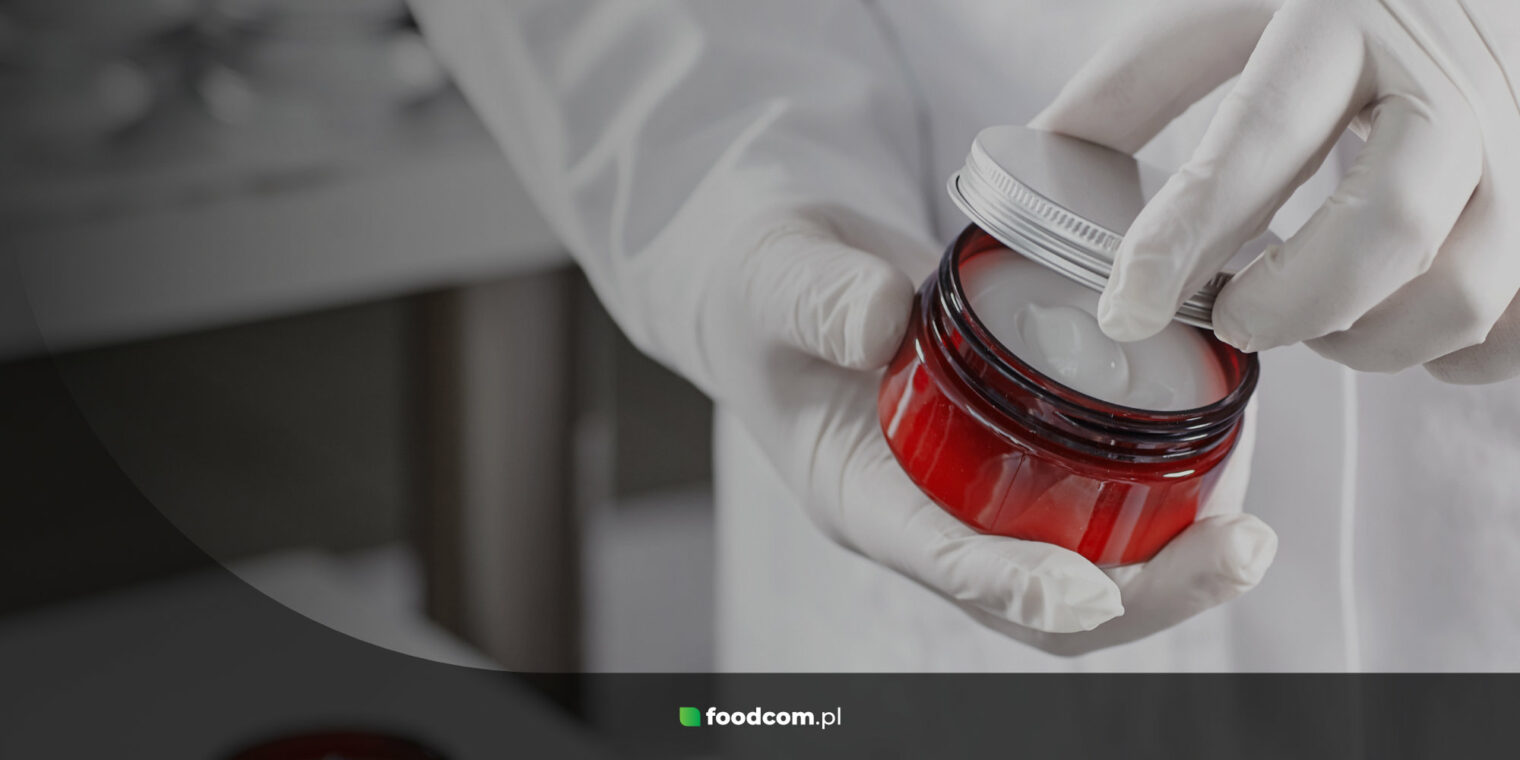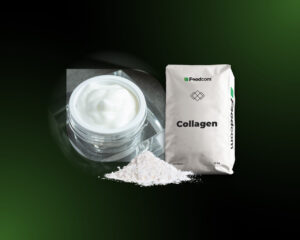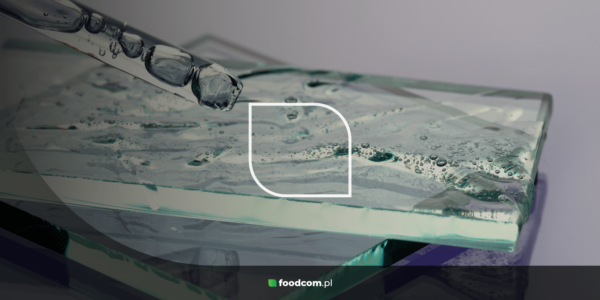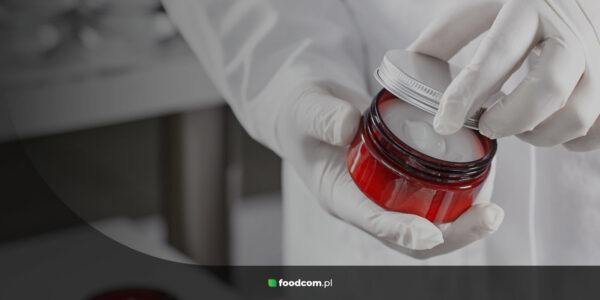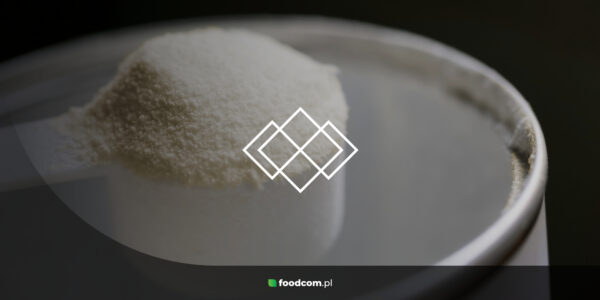- Ingredients in cosmetics can be divided into basic active ingredients and additives.
- Water, emulsifiers, preservatives, thickeners, moisturizers, colorants and perfumes are key ingredients in most cosmetics.
- Collagen, Vitamin C, Vitamin A and Hydrolyzed Elastin are important ingredients in cosmetic business that are worth noticing.
Ingredients can be divided into basic active ingredients and additives. Key components in most cosmetics are water, emulsifiers, preservatives, thickeners, moisturizers, colorants, and fragrances. Although there is no such thing as a textbook product formula, the additives and vitamins presented below can add a few extra properties to your final product.
If you choose high-quality additives, you can be sure that the quality of the cosmetics you produce will be at the right level.
Collagen
The name comes from the Greek word “kolla”, which means glue. This is because collagen acts like a kind of glue that holds tissues together. Collagen is the main structural protein in the extracellular matrix found in the various connective tissues of the body.
It has many medical uses in treating complications of the bones and skin. It can also be applied in cosmetic surgery as a healing aid for burn patients for bone reconstruction There is also a variety of dental, orthopedic, and surgical purposes of collagen.
Wrinkles and skin aging can be treated by collagen, as it is used as a dermal filler.. That’s why you can find it in many various products like face creams for mature skin. Collagen strengthens the protective properties of the skin against moisture loss and harmful external factors. Not only is it recommended for sun-damaged or vascular skin curations, but in the acceleration of the healing process of wounds and scars as well. Many people reach for supplements that help replenish collagen levels in the body.
Collagen is also responsible for the beauty of our hair, preventing hair loss, and making it supple and shiny. Professional treatments in hair salons, aimed at rebuilding the hair structure also have a high collagen content. It also has an impact on our nails. It is said that nail care products rich in collagen harden the faded nail plate and restore its shine, as well as make it more resistant to mechanical damage – resulting in less harder, and healthier nails.
Vitamin C
Vitamin C occurs in an oxidized or reduced form of L-ascorbic acid. It is very susceptible to destruction, especially by light and heat. Vitamin C is primarily an excellent antioxidant and nutrient that has strong anti-inflammatory properties.
In the cosmetic industry, it is widely used in cosmetics to improve texture and even out skin tone. It reduces the signs of aging and provides additional moisture. The oxidation of this vitamin can be delayed for several days, which helps the accumulation of the vitamin and nourishes the skin.
In pharmacy, vitamin C is known as a stimulant of the immune system that is involved in wound healing, and coping with stress. It stimulates the deactivation of various toxic substances. It is one of the most important antioxidants in nutrition and protects cells from the harmful effects of reactive oxygen species.
In cosmetics, there are different forms of vitamin C, and many factors influence the choice of the right one, as they may have different parameters. The concentration of vitamin C in cosmetics varies between 8 and 20%, and in eye preparations from 3% to 5%. Products with a concentration above fifteen percent are considered to give the best results.
Vitamin A
Vitamin A plays a crucial role in the immune system of the organism and maintaining health. It is responsible for skin and mucosal tissue development and their proper functioning in order to prevent unwanted pathogens such as bacteria, viruses, and toxins from entering the organism.
Vitamin A also takes various forms, collectively known as retinoids. Most people know the ingredient mainly from cosmetics where it is named ‘retinol’. Vitamin A consists of two different forms: preformed vitamin A and provitamin A.
This group includes structurally related substances with the biological properties of retinol, apart from the ingredient itself. Since the biological activity of the substances is different, it is expressed in retinol equivalents for standardization. Vitamin A and its derivatives are among the most effective substances in slowing down the aging process.
Retinoids regulate apoptosis, differentiation, and proliferation of cells. The anti-wrinkle properties of retinoids promote keratinocyte proliferation, strengthening the protective function of the epidermis, inhibiting of transepidermal water loss, protecting collagen from degradation, and detaining the activity of metalloproteases. Vitamin A is an essential nutrient that supports skin, eye, and reproductive health.
Glycerol
Glycerol is a type of carbohydrate called sugar alcohol or polyol. It is a colorless, odorless, viscous liquid that is sweet-tasting and non-toxic. Natural glycerin is obtained from coconut or palm oil, the synthetic one on the other hand, is usually from propylene. It is one of the most valuable and versatile chemical substances in nature, considering glycerol has multiple uses in various industries. This ingredient can be applied as a humectant, plasticizer, emollient, sweetener, and bulking agent in low-fat foods and many more.
Glycerin is a component of glycerin soap where essential oils are added for fragrance. This type of soap is used by people with sensitive, easily irritated skin because its moisturizing properties prevent the skin from drying out. It draws moisture up through the layers of the skin and slows or prevents excessive drying and evaporation.
Nowadays, it is difficult to find a cosmetic product that does not contain glycerol! As previously mentioned, it is a humectant, which means it prevents the cosmetic compounds from crystallization (drying out). This means it also reduces the activity of water, which is an excellent breeding ground for microorganisms. Other functions of glycerin include the use as a fragrance, skin moisturizer, protectant, and viscosity reducer. It can penetrate the epidermis and thus acts as a permeation enhancer facilitating the transport of other substances deep into the skin.
Hydrolyzed Elastin
Hydrolyzed Elastin, simply called elastin, is a conditioning agent, an emollient, used in skin and hair care products. It forms an occlusive layer (film) on its surface that prevents excessive evaporation of water from the surface. This way it indirectly both moisturizes and softens the skin and hair. In detergents, elastin is used to limit the potentially irritating effect of anionic surfactants such as sodium laureth sulfate. As an antistatic ingredient, it reduces static electricity in hair by neutralizing electrical charges on the hair’s surface.
Elastin is also a protein that is one of the most important building blocks of the skin. It is one of the reasons why the skin is elastic and stretchable. However, as we age, elastin production decreases and eventually stops altogether. That’s when cosmetics with elastin can be recommended to delay the visible effects of skin aging.
Hydrolyzed elastin also has a protective function that allows the skin to maintain an optimal level of moisture inside. It reduces the harmful effects of detergents or strong cleansers on the skin and protects it from water loss. That is undoubtedly why it is often added to creams that are beneficial for dehydrated skin. The emollient has the properties to absorb UV rays – therefore it protects the skin from their harmful effects.
As an additive to nail rinses, it protects nails from the negative effects of harsh ingredients and reduces the brittleness of nails, improving the elasticity of the nail plate.
Why Foodcom?
Our great team of Sales Support will help our Traders conduct the contract and business deals in a smooth and efficient way to ensure the best quality service to all our Business Partners. Our logistics team will take care of transportation and the financial department will be responsible for all matters connected with the financial part of the deal. Do not hesitate! Contact us.

